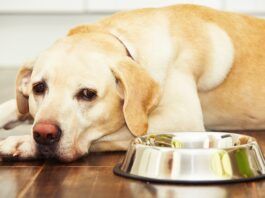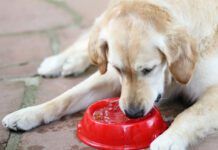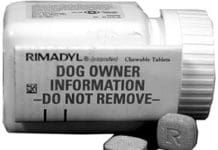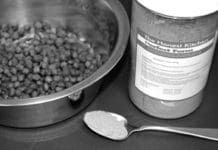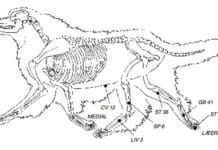Probiotics and Dogs
Curly, a five-year-old Standard Poodle, eats the best food his human can afford. Raw chicken, rabbit, and venison are his favorites. Tina, his two-legged companion, switches the meats every few days, mixing the protein with some sweet potato, carrots, an occasional stalk of broccoli, and always a good fish oil supplement. Plus, to be sure that Curly is getting full nutritional benefit from every delicious bite, Tina always adds a sprinkling of a probiotic and digestive enzyme supplement as a final touch. Everything Curly eats is the best of the best: human-grade ingredients, no preservatives, no by-products. But somehow, despite all of the good lovin' and great food, Curly is a bit thin, won't put on weight, and his stool is sometimes dry making it hard for the poor guy to poop during his daily walks. Tina knows that something is amiss and she is worried. She was told that maybe the probiotics weren't active, so she tried several different brands. But nothing has improved. So what gives; is it that the probiotics don't work? Adding supplemental Lactobacillus acidophilus, Bifidobacterium bifidum, Lactobacillus bulgaricus, or other probiotic organisms to your dog's diet is almost always a good idea. This will support the resident microflora that are always present in Curly's gut, enhancing digestion and absorption of nutrients, supporting detoxification and elimination processes, and helping to boost his immune system.
Determining Your Dog’s Health Through His Feces
You can learn a lot about your dogs’ health from their poop. Its color, consistency, contents, odor, amount, and frequency can give you valuable, up-to-date information about their health. For example, it can provide early warning that your dog’s diet may be unsuitable, or that she may be grappling with parasites, viruses, unfriendly bacteria, bad water, emotional upset, food allergies, or serious illness.
Probiotics Boost Canine Overall Health
Who hasn't heard of friendly" or "beneficial" bacteria? Even acidophilus
Wobenzym: A Digestive Enzyme Supplement for Dogs
Even when their formulas don't change, there's always something new to discover about old, familiar products. This month we're updating information on the safety and uses of Wobenzym, a supplement that became a favorite of many WDJ readers after our article on the product (Banking on Enzymes") appeared in January 2001. Charles Green is America's largest Wobenzym distributor. When his Las Vegas supplement store was listed as a resource in the article
When a Low-Protein “Kidney Diet” Is Not the Answer
Every day, thousands of dogs are diagnosed with kidney disease. The first suggestion most conventional veterinarians make is to switch from whatever the dog has been eating to a low-protein “kidney diet” food. Clients are sent home with bags or cans of “prescription” food and warned not to feed high-protein foods or treats of any kind.
The Anatomy of the Canine Kidney
Bone health is reliant upon healthy kidneys in at least two ways. First, vitamin D is necessary for the utilization of calcium, and the activated form of vitamin D is produced in the kidney. Second, normal kidneys excrete phosphorous; chronic renal failure may lead to excessive retention of phosphorous, which in turn causes an imbalance between calcium and phosphorous.
Gluten-Free Dog Diets
Does your dog suffer from allergies, joint pain, epilepsy, recurrent ear infections, or other chronic health problems? Have you tried lots of treatments alternative and conventional but you just can't seem to help your dog get well and stay that way? You might want to look a little closer at the diet recommendations of John Symes, DVM.
Does Your Dog Have Gas?
It is normal for dogs to have an occasional bout of gas. But it is not normal for flatulence to occur all the time. Flatulence can be relieved quickly in dogs by use of simethicone, the same anti-foaming drug that is marketed for humans in a variety of over-the-counter preparations. Simethicone is generally accepted as safe for dogs, even in human-sized doses. However, there may be some drawbacks to the use of Gaviscon, Gas-X, or any other simethicone product in your dog.
The Canine Digestion Process
Digestion involves the balanced interaction of several biodynamic systems. A healthy animal ingests raw materials (food), changes these raw materials into usable nutrients, extracts from these nutrients the essentials for life and vitality, and excretes (in the form of feces) those substances that have not been digested or that werent utilized.
Acupressure Improves Your Dog’s Digestion
If not for their dinner bowls, dogs would still be wolves. In many ways our devoted, domesticated dogs are still wolves, especially when it comes to their digestion. In the past 10 years, holistically oriented guardians and healthcare practitioners have become proponents of fresh food diets plus supplements for dogs. There are many authoritative books, journals, and magazines that are doing their best to raise the consciousness of the general public about the health issues associated with manufactured dog foods.



